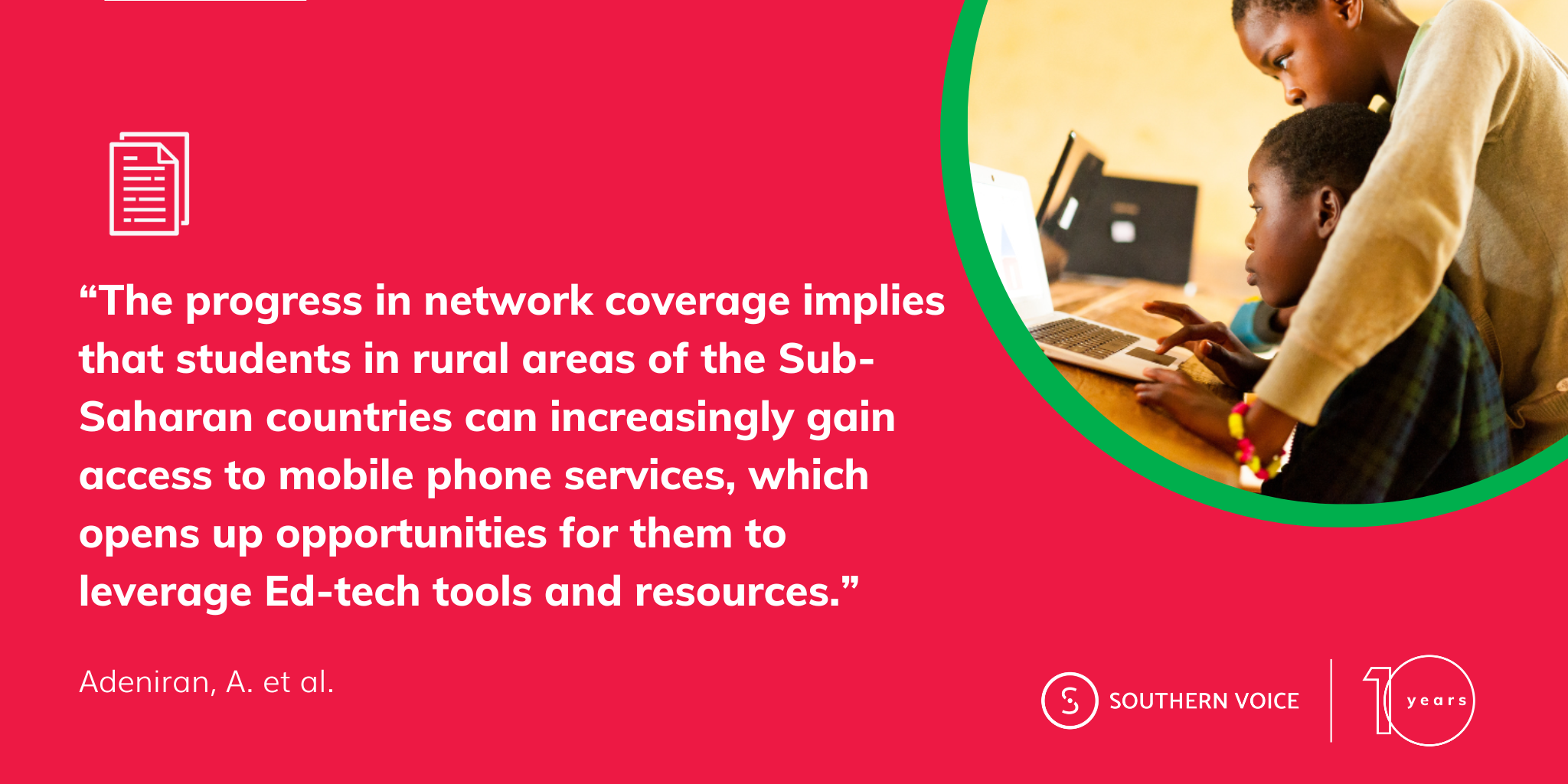
This study examines the adoption of education technology (Ed-tech) in primary and secondary education in 10 sub-Saharan African countries: Nigeria, South Africa, Sierra Leone, Uganda, Kenya, Tanzania, Cameroon, Benin, Malawi, and Senegal. The study assesses development and implementation of Ed-tech policies and programmes in the region, exploring how far Ed-tech has advanced learning outcomes, improved access, and reduced education inequalities within and between countries in sub-Saharan Africa.
Overall, the study reveals that insufficient budgetary allocation, a lack of supportive infrastructure, and inadequate teacher training outweigh the limited progress in Ed-tech adoption rates observed in the countries surveyed. It was also found that the heavy burden placed on households to provide digital devices and infrastructure limited the possibility of achieving higher adoption rates. There were high levels of inequality in Ed-tech adoption in most countries, both in terms of gender and geography (rural and urban), with much lower access to, and use of Ed-tech tools and resources in rural areas.
The study also finds that insufficient government funding significantly affects Ed-tech adoption in nearly all countries, with most initiatives being led and financed by non-governmental organisations (NGOs) and startups in these countries. Additionally, political shifts and transitions, which capture the role of political economy, are other factors that shape Ed-tech implementation and adoption in the countries, with transitions from one government to another often undermining the sustainability of Ed-tech policies. Overall, the study highlights the need for comprehensive and sustained government support to address access inequalities and ensure long-term sustainability. Governments should also encourage private sector participation by providing an enabling environment for it to support Ed-tech adoption in schools.


